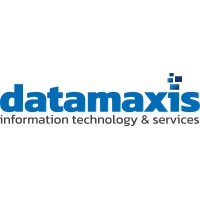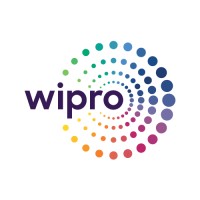

Estuate, Inc.
Azure Data Lake Engineering Lead
⭐ - Featured Role | Apply direct with Data Freelance Hub
This role is for an Azure Data Lake Engineering Lead, offering a contract of unspecified length, with a pay rate of "unknown." Candidates should have 8+ years in data engineering, leadership experience, and expertise in Azure Data Lake, Databricks, and security concepts.
🌎 - Country
United States
💱 - Currency
$ USD
-
💰 - Day rate
Unknown
-
🗓️ - Date
November 12, 2025
🕒 - Duration
Unknown
-
🏝️ - Location
Unknown
-
📄 - Contract
Unknown
-
🔒 - Security
Unknown
-
📍 - Location detailed
Glendale, AZ
-
🧠 - Skills detailed
#Big Data #"ETL (Extract #Transform #Load)" #GDPR (General Data Protection Regulation) #SQL (Structured Query Language) #Compliance #Data Ingestion #Data Engineering #Agile #Data Lakehouse #Monitoring #Computer Science #Azure Security #Storage #Data Science #Data Lake #Deployment #Security #Azure #Data Encryption #Cloud #DevOps #Data Architecture #Scala #Databricks #Data Governance #Strategy #Data Strategy #Business Analysis #Leadership #Data Modeling
Role description
Job Summary:
We are seeking an experienced and highly skilled Software Engineering Lead to spearhead our data initiatives, with a primary focus on Azure Data Lake and its associated ecosystem. The ideal candidate will possess deep architectural knowledge of Azure Data Lake and Databricks, a solid understanding of security concepts within Azure, and a proven track record of leading teams in delivering scalable and secure data solutions.
Major Responsibilities:
Architectural Design and Implementation:
• Design and implement robust, scalable, and efficient data architectures leveraging Azure Data Lake and Databricks.
• Define and enforce best practices for data ingestion, storage, processing, and retrieval.
• Optimize data workflows to ensure high performance and cost efficiency.
Data Governance and Security:
• Develop and implement security measures for Azure Data Lake, ensuring compliance with organizational and regulatory standards.
• Manage role-based access control (RBAC), encryption, and other security protocols within Azure Subscriptions.
• Collaborate with security teams to perform regular audits and vulnerability assessments.
Team Leadership and Collaboration:
• Lead and mentor a team of data engineers, providing technical guidance and fostering professional development.
• Collaborate with cross-functional teams, including data scientists, business analysts, and IT teams, to deliver data-driven solutions.
• Drive agile practices and ensure timely delivery of projects.
Platform Optimization and Monitoring:
• Oversee the deployment and management of Azure Data Lake and Databricks environments.
• Implement monitoring and alerting systems to ensure system reliability and performance.
• Evaluate and incorporate new Azure services and technologies to enhance the data platform.
Strategic Planning and Roadmap Development:
• Develop and execute a roadmap for data engineering aligned with business objectives.
• Stay abreast of industry trends and advancements in data engineering and Azure technologies.
• Provide recommendations for long-term data strategy, including data lakehouse adoption and cloud optimization.
Education and Experience Requirements:
• Bachelor's or Master's degree in Computer Science, Information Technology, or a related field.
• 8+ years of experience in data engineering, with at least 3 years in a leadership role.
• Extensive hands-on experience with Azure Data Lake, Databricks, and other Azure services.
• Proven expertise in architecting and implementing large-scale data solutions.
Required Knowledge and Skills:
• Proficiency in SQL.
• Deep understanding of Azure security concepts, including subscription management, RBAC, and data encryption.
• Experience with data modeling, ETL pipelines, and big data technologies.
• Familiarity with CI/CD pipelines and DevOps practices in a data engineering context.
Preferred Qualifications:
• Azure certifications, such as Azure Data Engineer Associate or Azure Solutions Architect Expert.
• Experience with implementing data lakehouse architectures.
• Familiarity with data governance frameworks like GDPR, CCPA, or HIPAA.
Job Summary:
We are seeking an experienced and highly skilled Software Engineering Lead to spearhead our data initiatives, with a primary focus on Azure Data Lake and its associated ecosystem. The ideal candidate will possess deep architectural knowledge of Azure Data Lake and Databricks, a solid understanding of security concepts within Azure, and a proven track record of leading teams in delivering scalable and secure data solutions.
Major Responsibilities:
Architectural Design and Implementation:
• Design and implement robust, scalable, and efficient data architectures leveraging Azure Data Lake and Databricks.
• Define and enforce best practices for data ingestion, storage, processing, and retrieval.
• Optimize data workflows to ensure high performance and cost efficiency.
Data Governance and Security:
• Develop and implement security measures for Azure Data Lake, ensuring compliance with organizational and regulatory standards.
• Manage role-based access control (RBAC), encryption, and other security protocols within Azure Subscriptions.
• Collaborate with security teams to perform regular audits and vulnerability assessments.
Team Leadership and Collaboration:
• Lead and mentor a team of data engineers, providing technical guidance and fostering professional development.
• Collaborate with cross-functional teams, including data scientists, business analysts, and IT teams, to deliver data-driven solutions.
• Drive agile practices and ensure timely delivery of projects.
Platform Optimization and Monitoring:
• Oversee the deployment and management of Azure Data Lake and Databricks environments.
• Implement monitoring and alerting systems to ensure system reliability and performance.
• Evaluate and incorporate new Azure services and technologies to enhance the data platform.
Strategic Planning and Roadmap Development:
• Develop and execute a roadmap for data engineering aligned with business objectives.
• Stay abreast of industry trends and advancements in data engineering and Azure technologies.
• Provide recommendations for long-term data strategy, including data lakehouse adoption and cloud optimization.
Education and Experience Requirements:
• Bachelor's or Master's degree in Computer Science, Information Technology, or a related field.
• 8+ years of experience in data engineering, with at least 3 years in a leadership role.
• Extensive hands-on experience with Azure Data Lake, Databricks, and other Azure services.
• Proven expertise in architecting and implementing large-scale data solutions.
Required Knowledge and Skills:
• Proficiency in SQL.
• Deep understanding of Azure security concepts, including subscription management, RBAC, and data encryption.
• Experience with data modeling, ETL pipelines, and big data technologies.
• Familiarity with CI/CD pipelines and DevOps practices in a data engineering context.
Preferred Qualifications:
• Azure certifications, such as Azure Data Engineer Associate or Azure Solutions Architect Expert.
• Experience with implementing data lakehouse architectures.
• Familiarity with data governance frameworks like GDPR, CCPA, or HIPAA.






